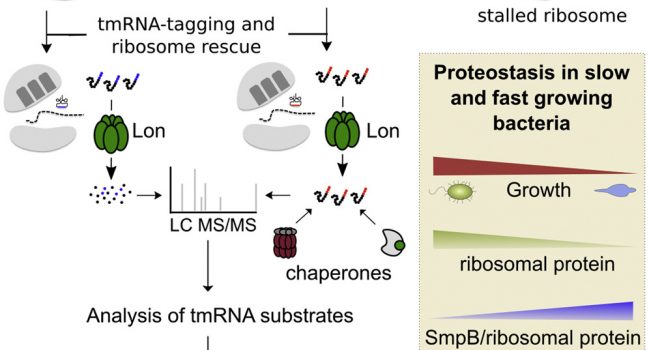Abstract:
“Trans-translation is a ubiquitous bacterial mechanism of ribosome rescue mediated by a transfer-messenger RNA (tmRNA) that adds a degradation tag to the truncated nascent polypeptide. Here, we characterize this quality control system in a genome-reduced bacterium, Mycoplasma pneumoniae (MPN), and perform a comparative analysis of protein quality control components in slow and fast-growing prokaryotes. We show in vivo that in MPN the sole quality control cytoplasmic protease (Lon) degrades efficiently tmRNA-tagged proteins. Analysis of tmRNA-mutants encoding a tag resistant to proteolysis reveals extensive tagging activity under normal growth. Unlike knockout strains, these mutants are viable demonstrating the requirement of tmRNA-mediated ribosome recycling. Chaperone and Lon steady-state levels maintain proteostasis in these mutants suggesting a model in which co-evolution of Lon and their substrates offer simple mechanisms of regulation without specialized degradation machineries. Finally, comparative analysis shows relative increase in Lon/Chaperone levels in slow-growing bacteria suggesting physiological adaptation to growth demand.”
Read the full text article.

